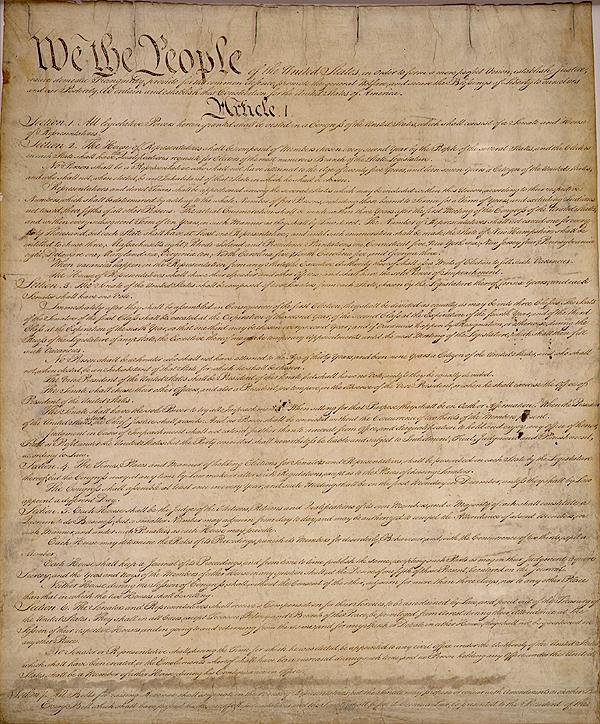States Rights
One of the recurrent themes in The Nation That Never Was by Kermit Roosevelt is states rights, the right of the state to make many critical decisions about the rights and privileges of their residents. It seems like a strange way to run a country. How can we think of ourselves as a single nation when there are enormous variations in our rights? It seems contradictory to another recurrent theme of Roosevelt: the desire for unity.
The original English settlements in the US were organized under Charters from the Kings of England. They seem to have been drawn for various political reasons, that is reasons of English politics and money, and without regard to the interests of Indigenous Americans, or of the Colonists. There was no plan. Our original 13 colonies arrived on the scene just like the nations of the Middle East after the Sykes-Picot lines: as an exercise of British colonialism.
The Colonists were subjects of the English Crown, but each colony eventually established its own government. They created courts, legislatures, and administrative bodies usually under a written constitution. One of the big complaints in the Declaration of Independence is that the King is ignoring these institutions. As an example:
He has obstructed the Administration of Justice, by refusing his Assent to Laws for establishing Judiciary powers.
He has made Judges dependent on his Will alone, for the tenure of their offices, and the amount and payment of their salaries.
By 1776, these governments were entrenched. After the Revolutionary War their big fear was that any central government would act the tyrant as had the English Kings. That led to the Articles of Confederation, which created a central government so weak it could not be a tyrant. The Articles were a total failure.
But the dominant vision remained. Colonial leaders wanted a federation of independent states, each with a strong government, and a national government barred from interfering with state governments. The Constitution preserves most of the powers of the individual states, and gave the rest to the central government. They got a central government strong enough to insure peace among these independent units, to ward off external attack, and to establish a suitable business environment. People’s rights as citizens of the United States were limited. Substantially all individual rights sprang from state citizenship.
Even within this context slavery was a paramount issue. The northern states were moving away from it, as was Europe. This was obviously a concern to the Southern states, and the Constitution contains provisions they demanded by the to alleviate those concerns.
Roosevelt says that supporting the demands of the slave states is just the first of many occasions in which unity takes priority over equality in our history. It’s one of the many times the interests and rights of Black people were sacrificed to the demands of unity.
The Constitution was an agreement among the Thirteen Colonies, not an agreement of “We the people of the United States” as the Preamble states. Theoretically the people agreed through their representatives in the state governments, but that seems just as unlikely as the assumptions underlying of social contract theory.
The Founders Constitution preserves the powers of the States except for specific matters, and that is confirmed by the Tenth Amendment:
The powers not delegated to the United States by the Constitution, nor prohibited by it to the States, are reserved to the States respectively, or to the people.
The powers reserved to the states include determining citizenship in the state, the right to vote, the right to serve on juries, almost all other political rights, and the right to establish and regulate slavery. This is the origin of the notion of states rights: that the state has the right to determine your rights.
Theoretically the Reconstruction Amendments changed the relations between the states and the Federal government. Citizenship in a state was conferred on all residents, and the states didn’t get to decide that question. The rights in the Constitution became enforceable against the states, although that took decades and has a twisted legal history. Voting was a right guaranteed by the federal government. States were prohibited from treating people differently on account of race. Congress was explicitly empowered to legislate these changes. But the Supreme Court refused to allow this to happen. In the Slaughter-House Cases and later cases, the Supreme Court narrowed and nearly neutered the Reconstructions Amendments and restored state power, enabling states to neutralize the supposed gains of Black citizens.
The pre-Civil War arrangement of power continues to the present. In a 2010 case, McDonald v. City Of Chicago, the revanchist Alito said that SCOTUS wouldn’t reexamine the Slaughter-House Cases.
Discussion
Reading these cases makes me wonder what it means to be a US citizen, a point I have raised before, as here. If it’s true that your rights mostly come from the state where you live, the differences among the rights available to citizens can be enormous.
Two of the obvious examples currently are abortion and trans rights. Right-wing state legislators are passing laws to police these bodies directly and by terrifying medical professionals. Another obvious example is the right-wing assaults on education, including the ridiculous Florida laws against teaching subjects the right wing can’t face, like Black history and racism, LGBTQ rights, and critical thinking. This includes books like the two in this series and probably my posts on them.
I think the problem is much wider. The plain fact is that some states take better care of their citizens than others. The clearest example of this is life expectancy. Here’s a list of the states by life expectancy at birth using data from the years 2018-20. The top 5 states, all Blue (New Hampshire at 4 is purple), have a life expectancy of 79.4 years while the bottom 5, all bright Red, are at 72.9. If, as the Declaration claims, you have a right to life, you get nearly 9 more years of it in Hawaii than in Mississippi.
The same is true for education, public safety, and all other aspects of government that are primarily the responsibility of states. That inequality is the direct result of the notion of dual sovereignty that underlies cases like McDonald.
This problem was created by the Supreme Court. SCOTUS decisions about our rights as US citizens start with the Slaughter-House Cases and related cases that tightly narrow the Reconstruction Amendments. At about the same time SCOTUS decided to give rights to corporations just like people. SCOTUS dismantled the Voting Rights Act in direct violation of the Fourteenth and Fifteenth Amendments which give Congress the power to legislate. SCOTUS allows gerrymandering on the flimsiest pretexts and on the shadow docket.
Because whatever rights we have as citizens of the US are in the Constitution and federal laws, SCOTUS has the final say. SCOTUS has proven itself to be a screaming disaster for democracy, and for the supposed principles of the Founders of equality of life, liberty, and the pursuit of happiness.


